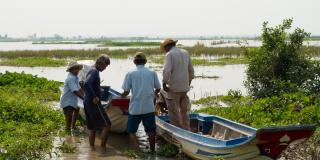
Climate change and overfishing are hitting Cambodia’s Great Lake hard, prompting VSO to help boost incomes for those living on its shores.
Millions of people depend on the Tonlé Sap. The lake lies north-west of the Cambodian capital, Phnom Penh, and the fish that once teemed in its waters provide as much as 75% of the protein for the country’s population of over 16 million.
Once the lake may have seemed inexhaustible but now overfishing, dam building and, most worryingly, climate change, are hitting hard.
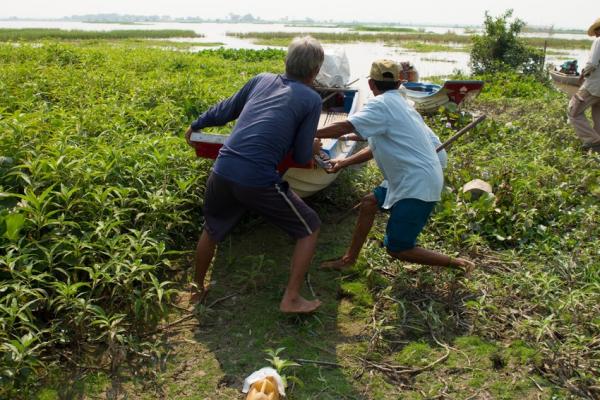
Locals say they used to make a comfortable living from the lake, but now dwindling fish stocks have forced many into agriculture. Pel Pon (in hat) was a fisherman but is now a member of a village agriculture co-operative, growing beans to make a living. He says more and more of his friends who once fished for a living are having to find new ways to make ends meet.
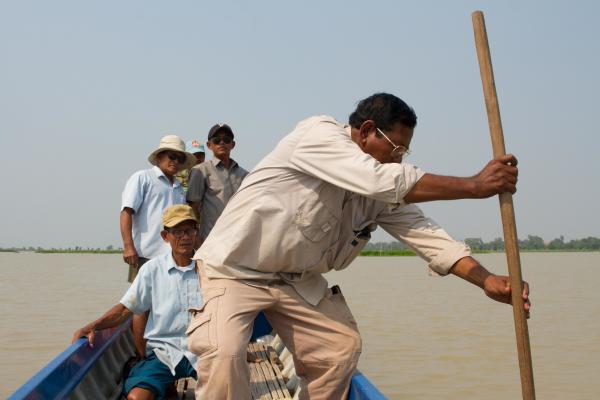
“I gave up fishing around five years ago, as the amount I catch kept on getting smaller and smaller,” says Pel Pon.
Another member of the co-operative, Koy Tenh, is also one of the rangers charged with preventing overfishing in the communal protected water zone. The zone aims to ensure that the local villagers have a stock of fish reserved for them, but Tenh says guarding it has become more difficult as people around the lake get “more and more desperate about making a living”.
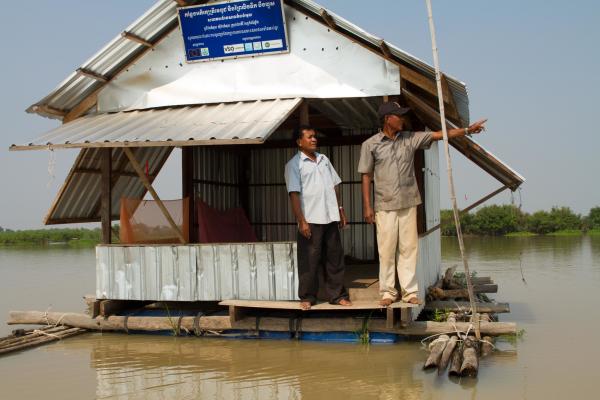
A floating lookout near the protected zone enables rangers like Tat Cheng, and village head, Phan Nov (in hat) to keep an eye on fishing in the lake. The hut’s construction was supported by several NGOs and funders, including VSO. Cheng says such safeguards are necessary with the number of fish caught “now at record lows.”
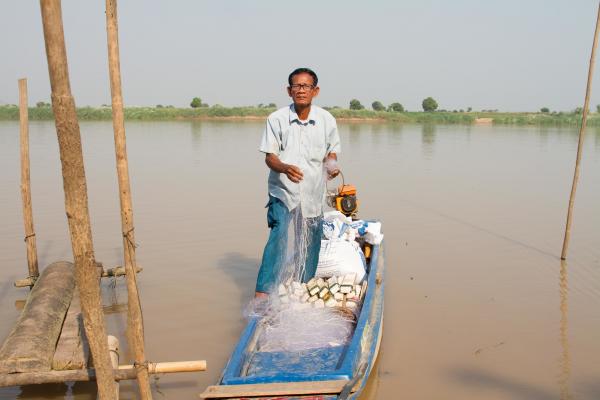
As making a living from the lake becomes more difficult, young people are leaving the district to work on construction sites or in garment factories in the Cambodian capital, Phnom Penh. Increasingly that leaves just the older generation, like Pel Pon.
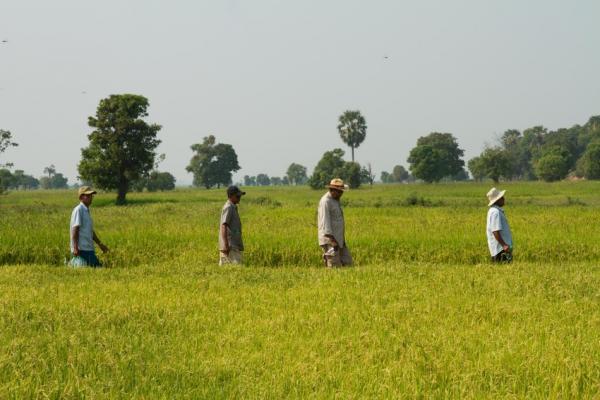
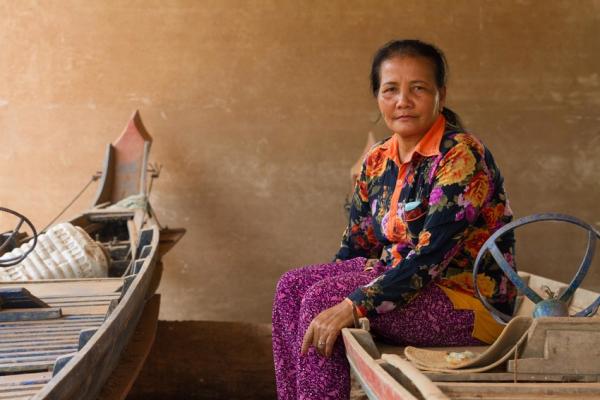
Most people living in the area used to rely on fishing for their livelihoods. Declining yields mean many have fallen back on farming, producing rice or beans.With little rain in recent years, the farmers rely on pumping water from the lake, using expensive petrol to power pumps. Working as a co-operative, advised by VSO, means costs can be shared and reduced.
Yu Saret, has two hectares of paddy fields in the Chol Kiri district of Kampong Chhnang province. Yu Saret’s husband died several years ago and since then all seven of her children have left to make a living as migrant workers abroad. Despite living close to the lake, Yu Saret spends what little money she has pumping water into her fields, with poor rains over the last few years forcing her to do this more.
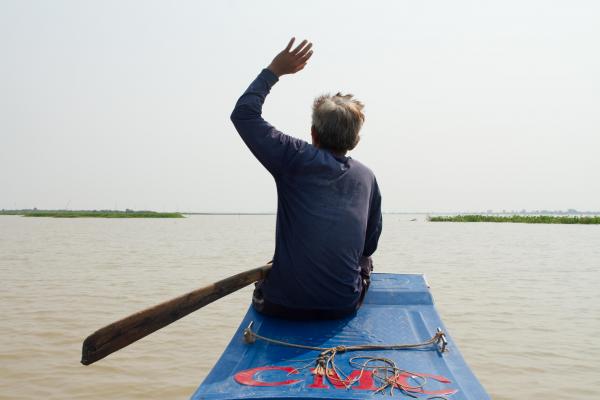
Pel Pon is now a member of an agricultural co-operative, set up with help from VSO. It aims to help former fishers, and others living in Kompung Chhnang province, diversify so they can provide themselves with alternative sources of income. But even with help, the changing climate casts a long shadow on the people living here.
Finding alternatives
In the face of such uncertainty, it’s safest to have diverse sources of income. But when fishing or farming is all you’ve ever known, the learning curve can be steep and costly. To help smooth the transition, a VSO project has supported more than 1,200 people, the vast majority women, to access the credit they need to invest in alternative livelihoods.
It’s far from a solution for the problems of all those living around the lake. Fish stocks will take decades to recover, while global climate change is set to have a huge impact on this fragile ecosystem.
But for the fishermen and farmers who’ve been involved in the VSO project, it has provided a measurable improvement in their lives; 85% have seen incomes improve by more than 20% – a rise that might even tempt some younger Cambodians to return to their homes along the Tonle Sap.
Read more
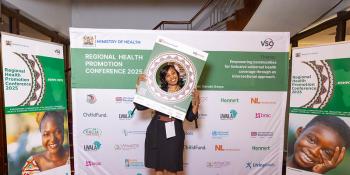
In photos: Our Regional Health Promotion Conference 2025
Check out some of our favourite photos from Regional Health Promotion Conference (RHPC25). This event sought to reimagine Universal Health Coverage through the lens of intersectionality.
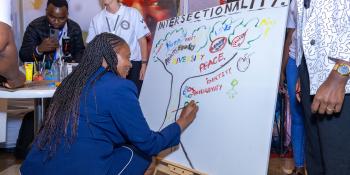
Using intersectionality to create healthy beginnings and hopeful futures
World Health Day brings global attention to the urgent need to end preventable maternal and newborn deaths. Learn more about how our Regional Health Promotion Conference is tackling these issues head on.
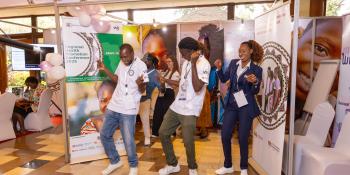
Highlights from the Regional Health Promotion Conference 2025
The Regional Health Promotion Conference 2025 reimagined Universal Health Coverage (UHC) through the lens of intersectionality, by bringing together experts from across East Africa and beyond.
